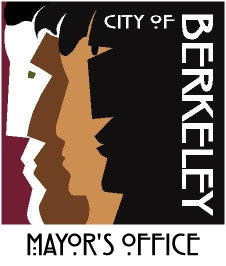Berkeley City Council Adopts Mayor Arreguin's Sweeping Police Reforms
BERKELEY CITY COUNCIL ADOPTS MAYOR ARREGUÍN'S SWEEPING POLICE REFORMS
Mayor Arreguín's initiatives end police stops for non-safety related offenses, require written consent for consent searches, preclude police from inquiring into parole and probation status in most circumstances, create an Early Intervention System to get biased officers off the street, and require the department to review social media postings and terminate officers who post racist content
BERKELEY - Yesterday evening, the Berkeley City Council voted unanimously to adopt Mayor Jesse Arreguín's groundbreaking police reforms aimed at ending pretext stops and reducing racial disparities in policing outcomes. The move comes in the wake of the Center on Policing Equity’s report which showed Black persons are 6.5 time more likely to be stopped by the Berkeley Police Department (BPD) than white persons while driving, and 4.5 times more likely to be stopped while on foot. The new policies, which range from eliminating police stops for low-level offenses not impacting public safety to requiring written consent for police searches, will allow police officers to focus resources on serious threats while reducing unnecessary police interventions experienced disproportionately by people of color.
“Biased policing has implications for community trust, and communities that are less trusting or fearful of police are less safe because they do not report crimes," said Berkeley Mayor Jesse Arreguín. "Berkeley is not immune from our nation's reckoning with systemic racism, but this community is united in its commitment to equal justice, and that makes us uniquely positioned to take on an issue that has been used to divide communities elsewhere. I’m proud of this community and I applaud our police department for rejecting the rhetoric that too often impedes reforms that serve the safety interests of the public and police alike. Too much of our city’s budget is spent on policing, and many of the duties we’ve assigned to officers do not require a response from someone with a badge and a gun. These are modern strategies that will enhance the long-term health, safety, and equity of the Berkeley community."
Mayor Arreguín’s reforms will reduce unnecessary encounters between the community and the police for items like not wearing a seatbelt or expired license tags. Such encounters are disproportionately visited on communities of color. Limiting such encounters serves to reduce disparities in policing. That, in turn, will enhance trust between police and the communities they are sworn to protect and serve. Decades of research has shown that lower levels of trust in police significantly decrease the likelihood that people will report crimes or cooperate with the police. The move will also free up public safety resources that will enable our guardians to focus on priorities like violent crime. Even though crime is at rates not seen since the 1960s, police budgets have continued to swell rapidly to unsustainable levels. In fact, a recent report found police department budgets consume between 20 and 45 percent of discretionary funding in metropolitan areas. In Berkeley, had the City Council not taken steps to cut our police department’s budget last year, the figure would have neared 50% of discretionary general funds over the next 5 years.
The reforms also include requirements that police no longer request parole or probation status and limit warrantless searches of individuals on Post Release Community Supervision (PRCS), probation, or parole. The council further voted to require written consent for consent searches.
Other reforms the council adopted include an Early Intervention System which will help identify officers who may be on a path to regular or significant misconduct. The system will use data on officer conduct ranging from minor to significant conduct (such as use of force) to assign points to an officer, with a certain number of points triggering a warning in the system. That warning will then prompt review and intervention by a supervisor or a member of the command staff. The council also voted to implement a recommendation to terminate police officers who publish racist content on their social media feeds. Such views are antithetical to the role of policing and can undermine effective prosecutions of dangerous individuals.
The Mayor’s recommendations were developed in consultation with key community stakeholders along with academic experts in an effort to identify best practices and recommend policy and programmatic changes to reduce racial disparities in stops, searches, and use of force. Oversight responsibilities will be given to the Police Accountability Board, a modern police oversight body, which was approved by voters during the November election to replace the Police Review Commission established in 1973.
In addition, next month the City is launching its community process to Reimagine Public Safety, which will build on these efforts to reform Berkeley's current policing approach and build toward a new system of positive, equitable and community-centered public safety. Initiatives include the development of a Specialized Care Unit to respond to mental health calls and the creation of a Department of Transportation (BerkDOT), which will build on the efforts of the working group to reduce unnecessary police enforcement and civilianize traffic enforcement in Berkeley.
The landmark reforms were implemented during Black History Month as the country mourns the death of George Floyd and wrestles with a legacy of systemic racism. In honor of Black History Month and Mr. Floyd, last week the Berkeley City Council flew the Black Lives Matter Flag.
